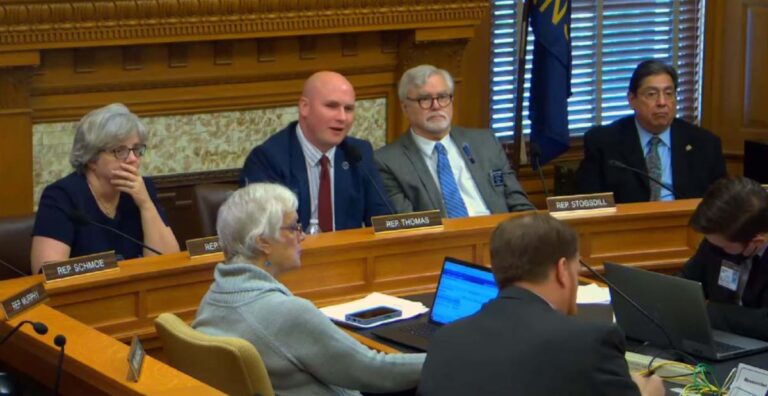Kansas Chamber President & CEO Alan Cobb on Thursday called for expanded computer science education in K-12 schools, citing a widening skills gap and the potential for high-paying jobs in technology-driven fields. Testifying before the Kansas House of Representative Committee on Education, Cobb pointed to data showing Kansas has more than 4,300 high-paying computing jobs that need to be filled, averaging $90,988 annually – nearly 20% above the median household income.
“Kansas has made progress in this area, but there is still much to do, as you are learning today,” Cobb said. “While the tech sector in Kansas is very important to the Kansas economy, virtually every industry and job sector in Kansas requires computer science skills.”
Cobb urged lawmakers to prioritize early computer science exposure, highlighting Code.org data showing increased career interest at younger ages. The report emphasized upward mobility potential, noting that computer science jobs offer a pathway to success for young Kansans, empowering them to contribute to the state’s economic future.
The Chamber’s testimony underscored the urgency of addressing the computer science skills gap, urging the committee to take decisive action to equip Kansas students with the tools they need to thrive in the 21st-century economy.
Joy Eakins, owner of Cornerstone Data in Wichita, also testified before the committee on the importance of Computer Science education and its future expansion throughout Kansas.
“Part of the problem for Kansas is that in many cases, we have not understood the difference
between digital literacy, programming and computational thinking,” Eakins said. “We have tried to solve this problem by focusing mostly on Computational Thinking Education Courses at the High School level. It helps a little, but it doesn’t get to our core problem.”
According to Eakins, as 21st-century skills rise in importance, integrating computer science education into curricula holds immense potential. By enabling students to develop fundamental coding abilities, computational thinking skills, and problem-solving strategies, computer science education equips them to navigate the rapidly evolving job market and thrive in a tech-driven world. By ensuring equitable access to diverse computer science curricula for students of all genders, ethnicities, and socioeconomic backgrounds, education systems can actively address existing skills inequalities and empower underrepresented groups to fully participate in the digital economy.
“Computer science skill sets are already in demand, and this need will only grow as specific fields like data analytics, cloud computing, cybersecurity, programming, networking and artificial intelligence continue to expand into the future,” Cobb explained. “The skill gap between computer science occupations and the supply of computer science graduates in our state widens every year.”
Cobb shared that according to Code.org, 60 percent of Kansas’ public K-12 school districts had no computer science class offerings at the high school level in 2023.



